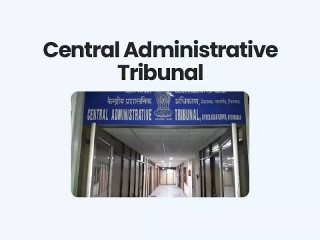
Central Administrative Tribunal (CAT)

02.04.2024
Central Administrative Tribunal (CAT)
|
For the Prelims:About Central Administrative Tribunal (CAT), Powers of the Central Administrative Tribunal |
Why in the news?
The Allahabad High Court has held that appeals against Central Administrative Tribunal (CAT) orders in contempt proceedings can be made in the Supreme Court.
Important points:
- The Allahabad High Court has held that an appeal against an order of the Central Administrative Tribunal in exercise of its contempt jurisdiction under Section 17 of the Administrative Tribunals Act, 1985 is a writ of appeal to the Supreme Court under Section 19 of the Contempt of Court Act, 1971. Can be presented.
- It was held that any such order cannot be challenged before the High Court under Article 226.
About Central Administrative Tribunal (CAT):
- The Central Administrative Tribunal was established under Article 323-A of the Constitution.
- Its principal object is to settle disputes and grievances in respect of recruitment and conditions of service of persons appointed to public services and posts in connection with the affairs of the Union or other authorities under the control of the Government.
- Apart from the Ministries and Departments of the Central Government, the Government has from time to time notified about 214 organizations under the jurisdiction of CAT.
- In this, a bench consists of a judicial member and an administrative member. CAT has 17 benches and 21 circuit benches across India.
- The service conditions of the Chairman and members of CAT are the same as those of a High Court judge.
- The salaries, allowances and conditions of service of the officers and other employees of the Tribunal are specified by the Central Government.
Powers of the Central Administrative Tribunal:
- It exercises jurisdiction only in respect of parties' service matters covered under the Administrative Tribunals Act 1985.
- The Tribunal is guided by the principles of natural justice in deciding cases and is not bound by the procedure laid down by the Code of Civil Procedure.
- It has the right to make its own rules of procedure and practice.
- It is empowered to exercise the same jurisdiction and power in respect of contempt of itself as a High Court.
Source: Indian Express